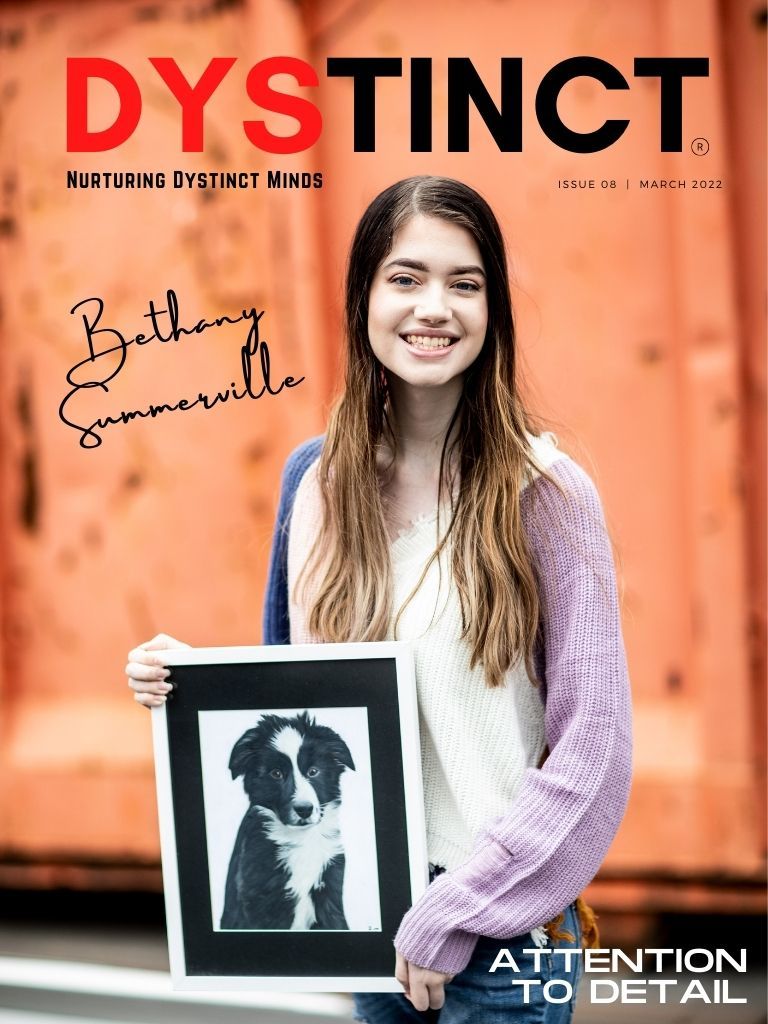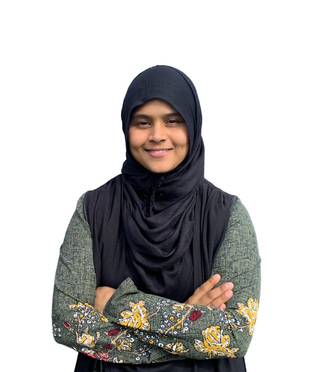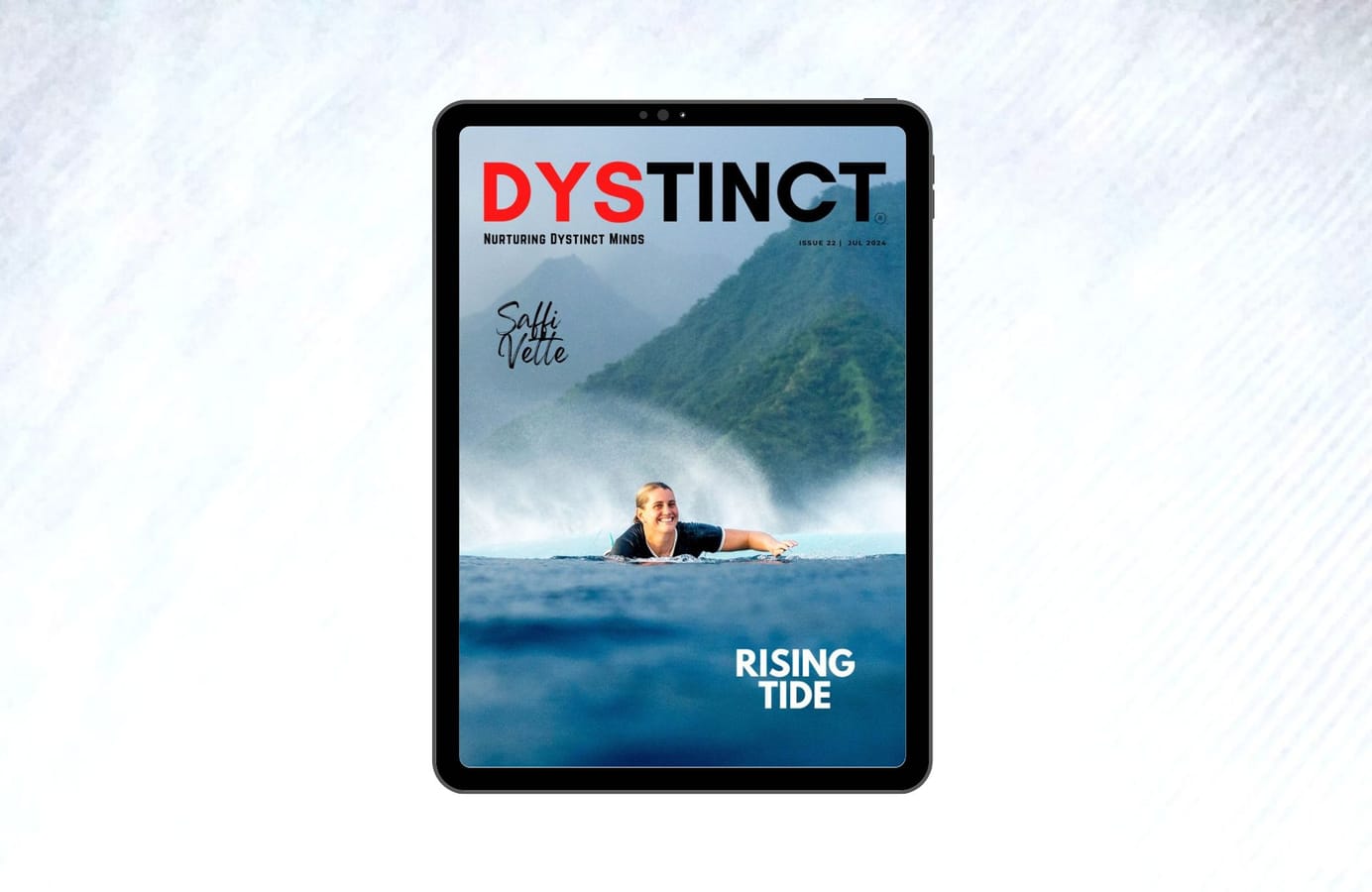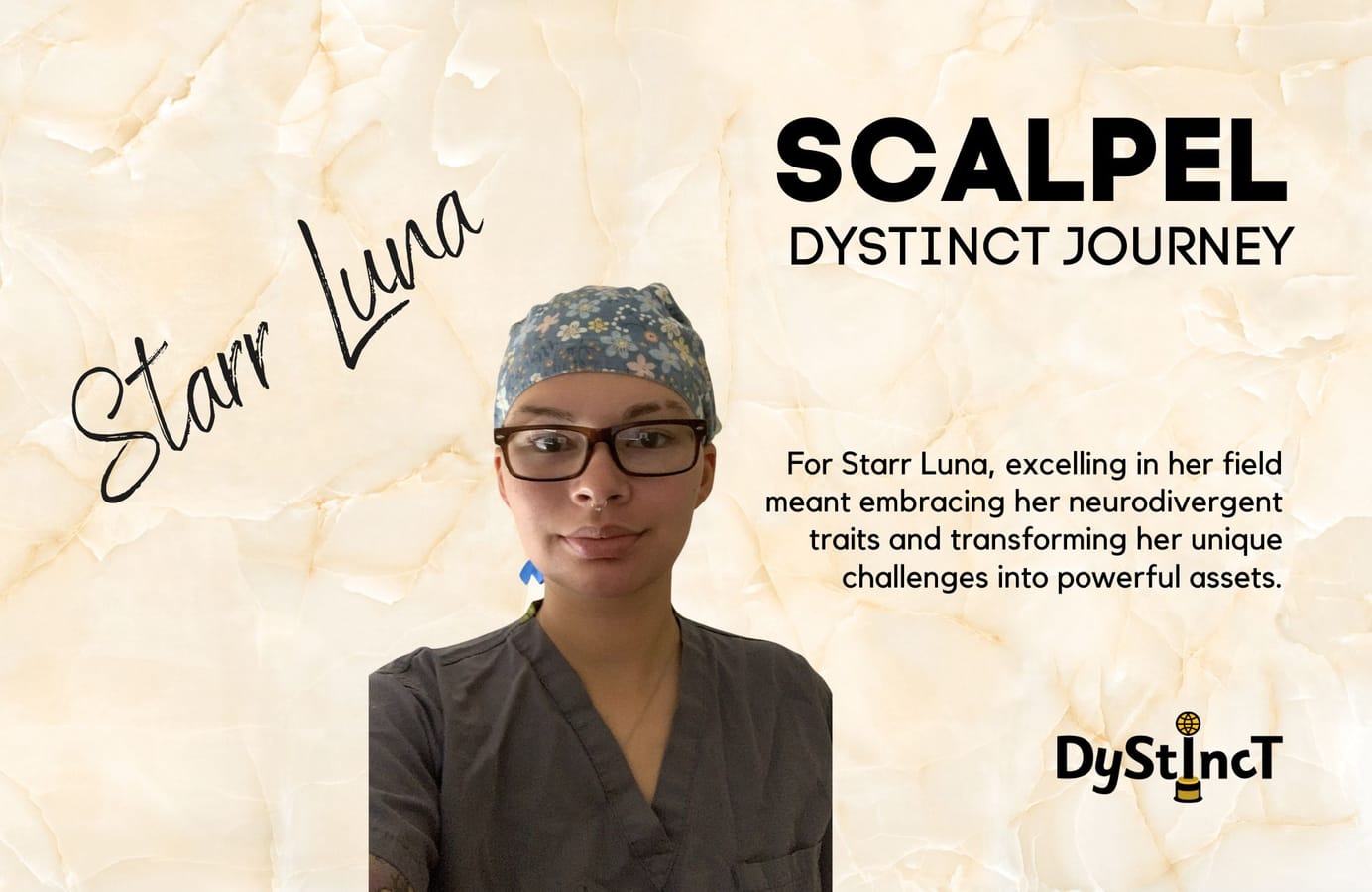Issue 08: March 2022 Dystinct Magazine
Dystinct Magazine's 8th issue: March 2022 is available to download on Apple and Android devices. The issue covers inspirational stories from children and adults with learning difficulties (dyslexia, dysgraphia, dysgraphia and dyspraxia).
Table of Contents
- How to Access Dystinct Magazine
- On the Cover
- Topics covered in this issue (includes links to access on website)
- Editor's Note
- Extracts from the Magazine
How To Access Dystinct Magazine
👉 Read further below to access all the content of the magazine on the website layout. Check links to each article in Topics covered in this issue
The magazine can be accessed on your mobile and tablet devices.
👉 Apple App Store - iOS iPad/iPhone
👉 Google Play Store - Android devices
👉 Libby Apple iOS | Google Android
👉 Zinio Newstand | MagsFast Newstand | Magzter Newstand
On The Cover

On the cover is Bethany Summerville.
This issue features the story of the talented 16-year-old homeschooled artist Bethany Danielle Summerville from Tennessee, USA who creates masterpieces that are tricky to differentiate from real pictures.
TOPICS COVERED IN THIS ISSUE
The March 2022 issue of Dystinct Magazine brings to you:
Pryor Rayburn discusses five myths surrounding phonics instruction that educators must consider while choosing their curriculum and planning instruction.
An interview with Australian mum Adrienne Adams about her family’s journey with dyslexia and how she along with her son Spencer Thorne created a short film to help children with learning differences understand themselves better.
Rebecca Loveless discusses the origins and science behind the Chancery script, a writing style that satisfies the desires of the proponents of both cursive and manuscript handwriting styles.
Adrianne Meldrum and Matthew Lyda outline the evidence behind the five indicators of multisensory math instruction and discuss six simple methods that can be used to support students.
14-year-old journalist Gwendolyn's article on evidence-based learning and how the Palmer Primary School in South Australia is providing an excellent environment for dyslexic children through the implementation of evidence-based learning in their classrooms.
Lisa Barnett discusses the interrelationship of morphology, etymology, and phonology and demonstrates how studying the written word through an orthographic lens can provide high-value tools that increase the breadth and depth of literacy for students.
The story of the talented 16-year-old homeschooled artist Bethany Danielle Summerville from Tennessee, USA who creates masterpieces that are tricky to differentiate from real pictures.
Simon Da Roza discusses how perceptions surrounding neurodivergence is slowly but surely changing and provides parents with 19 excellent tips on building a successful relationship with the school to support their children's diverse learning needs effectively.
Dr Andrea Kulmhofer-Bommer examines the challenges faced by non-native students of the English language and teacher preparedness to meet the unique learning needs of dyslexic non-native speakers in particular.
Gavin Hoole talks about the various influences in the developmental pathway of neurodivergent children and suggests ideas for the effective transitioning of neurodivergent youth into the employment space.
Valerie Woods from the UK talks of her journey growing up as a dyslexic child in the 1950s and shares tips and strategies that she used to cope.
Dr Tracy Johnson narrates her personal experience growing up as a child with learning difficulties dependent on public assistance and examines the inequality in education for students of colour, students with disabilities, and students from low-income backgrounds.
The inspirational journey of hardworking Jacob Ainsley from the UK whose passion for design technology helped him successfully graduate from university with a bachelor’s degree in product design and a prototype for a pen that can change many lives.
Editor's Note
The best time for new beginnings is now!
This is one of my favourite quotes, and I like to think about this quote, particularly a few months into the new year. I say a few months into the year because we make resolutions at the beginning of the year every year. But as the days turn into weeks and months, the pressure on ourselves to live up to the expectations we set upon ourselves turns into guilt and frustration. I had a long list of activities that I wanted to do with my boys to tick off before school resumed for a new academic year in February. My list included tasks such as introducing cursive handwriting, consolidating multiplication facts, introducing division, revising all irregular words learned at school last year and more. However, like all busy parents, I, too, didn't manage to tick off all the items on my very long to-do list. This quote reminds me that no matter what I didn't manage to do, I don't need to give up on my list or be upset about not getting things done because 'the best time to start is now."
So please go easy on yourself, and if you plan on starting a new routine to help your children with schoolwork, you can always start now.
I hope you enjoy reading this issue and all the specialist content covered.
Please get in touch with me if you have any feedback, ideas, or stories to share to change the narrative surrounding learning disabilities.
Thanks
Zahra Nawaz Shafeeq
Extracts from the Magazine













